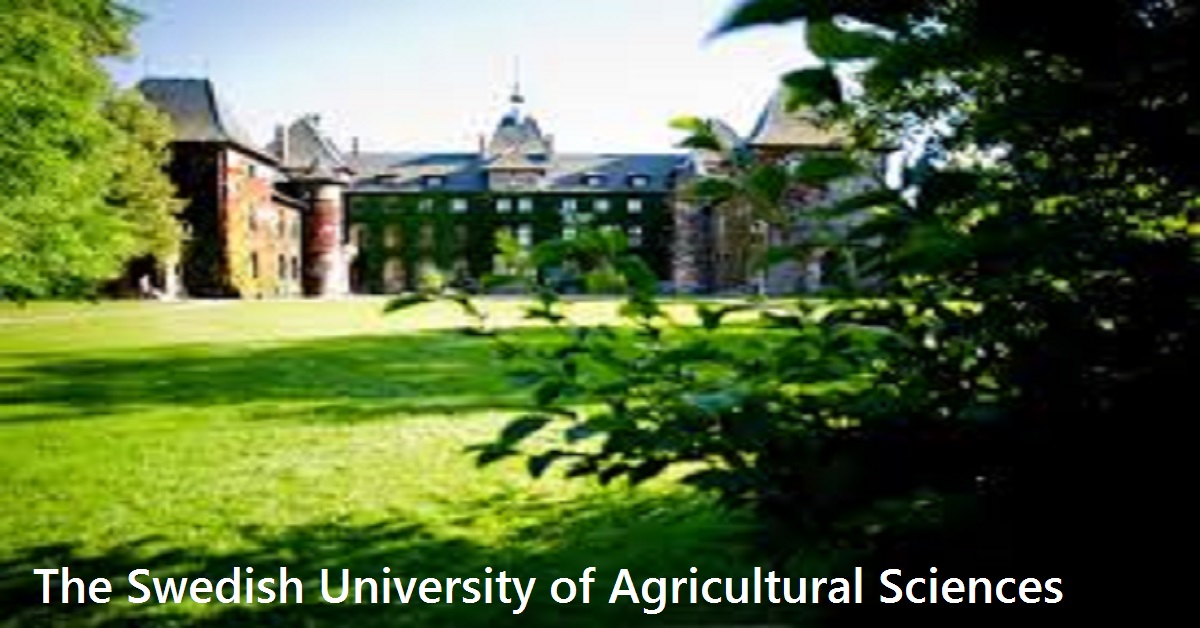Do you want to work in an inspiring environment and contribute to the sustainable use of our seas, lakes and watercourses? We at the Department of Aquatic Resources (SLU Aqua) are passionate about our vision of “strong fish stocks in healthy waters”. We are growing, and looking for employees who want to develop and make a difference together with us.
Welcome to visit us at www.slu.se/aquaticresources!
How does global warming influence bioaccumulation of radionuclides in fish?
Description:
Nuclear power is suggested as a way to produce energy without emitting CO2. However, radioactive substances (radionuclides) are emitted during regular operations, and risk being released in large amounts in accidents at power plants or during waste transport. Radionuclides are taken up by organisms, and can accumulate in fish. How these accumulate depend on what the fish eat, and the structure of their food web. The composition of aquatic food webs and feeding interactions are however changing with global warming. The aim of this PhD-project is to resolve how radionuclid emissions and discharges from nuclear power plants accumulate in fish and how this varies among Baltic Sea food webs and with climate warming.
To address this you will do field collections of fish around the Baltic Sea, analyse food web structure and radionuclide concentrations in these and in archived biological samples from a whole-ecosystem warming experiment, as well as use dynamic size-resolved food web models to simulate bioaccumulation in fish and develop scenario analyses to study how accumulation of radionuclides (from regular and accidental discharges) in fish change with global warming.
You will be part of our team working on dynamics of fish communities and aquatic food webs, and their responses to climate change, exploitation and other human pressures (www.slu.se/fishinfoodwebs). You will also pursue your research and education within our team’s international research network, with possibilities for research visits at other universities.
Qualifications:
We are looking for a motivated person with strong quantitative skills in ecology. Applicants should hold a MSc degree in ecology, animal ecology, aquatic ecology, limnology or marine ecology, theoretical ecology, applied mathematics or related disciplines. You should have a genuine interest in research and in learning to do research.
Good knowledge in ecology and quantitative analyses of population- or community dynamics is required, and documented experience thereof is desirable. Expertise in dynamic population or food web modelling is highly advantageous. Skills and experience in aquatic field work involving fish is meriting, as is experience of biological lab work. Demonstrated independent scientific work, experience of working in scientific teams, and skills in mathematics, R- or Matlab-programming are considered merits.
We place great emphasis on personal qualities such as curiosity, responsibility, and ability to work in teams as well as independently, and on personal suitability for the learning and research tasks. You are fluent in spoken and written English (required).
Place of work:
Uppsala/Öregrund
Form of employment:
Employment as PhD-student for 4 years.
Starting date:
To be agreed, preferably before January 2022.
Application:
We welcome your application no later than 2021-11-15, use the button below.
A person has basic eligibility for third cycle education if he or she has taken a second cycle qualification or has completed course requirements of at least 240 higher education credits, including at least 60 higher education credits at second cycle education. Upper secondary school grades equivalent to English B/English 6 are a basic requirement.
Selection among applicants meeting the requirements is made with reference to written application including curriculum vitae, copies of degrees and transcripts of academic records, one copy of the dissertation for masters degree, a list of at least two references familiar with the applicant’s qualifications (with name, relation to candidate, email and phone number), certified knowledge of the English language and an interview.
Please observe that applicant/s chosen to participate in an interview shall hand in certified true copies of certificates, diplomas and transcripts from previous studies at an internationally recognized higher education institution (university or university college) and transcripts in connection to the interview. If the applicant is a foreign citizen we require a certified copy of the page in your passport with your personal data and photography.
Read about the PhD education at SLU at www.slu.se/en/education/postgraduate-studies/
Academic union representatives:
The Swedish University of Agricultural Sciences (SLU) develops the understanding and sustainable use and management of biological natural resources. The university ranks well internationally within its subject areas. SLU is a research-intensive university that also offers unique degree programmes in for example rural development and natural resource management, environmental economics, animal science and landscape architecture. SLU has just over 3,000 employees, 5,000 students and a turnover of SEK 3 billion. The university has invested heavily in a modern, attractive environment on its campuses in Alnarp, Umeå and Uppsala. www.slu.se SLU is an equal opportunity employer.
Kontaktperson
Anna Gårdmark
Professor
+46 (0)10-478 41 25
forname.surename@slu.se
slu.se/annagardmark
Magnus Huss
Associate Professor
+46 (0)10-478 41 27
forname.surename@slu.se
Contact person
URL to this pagehttps://www.slu.se/en/about-slu/work-at-slu/jobs-vacancies/?rmpage=job&rmjob=5505&rmlang=UK
